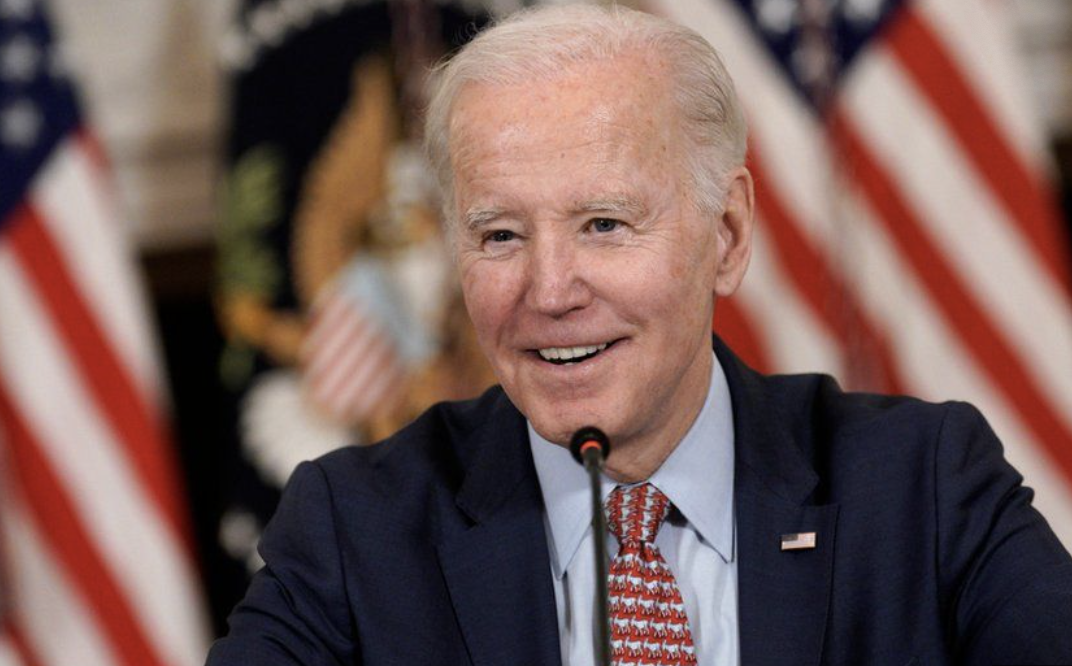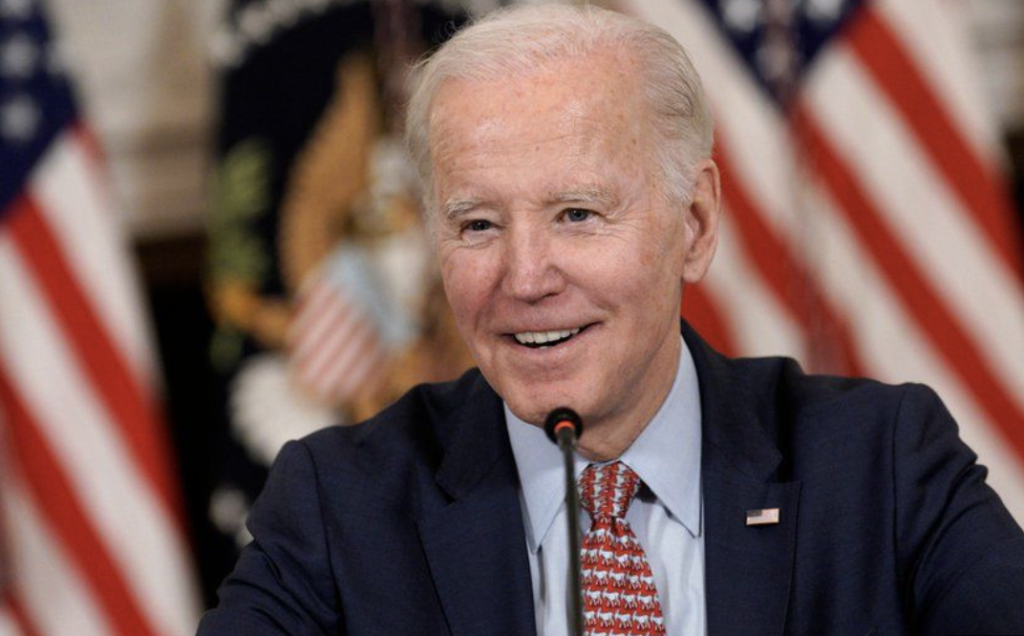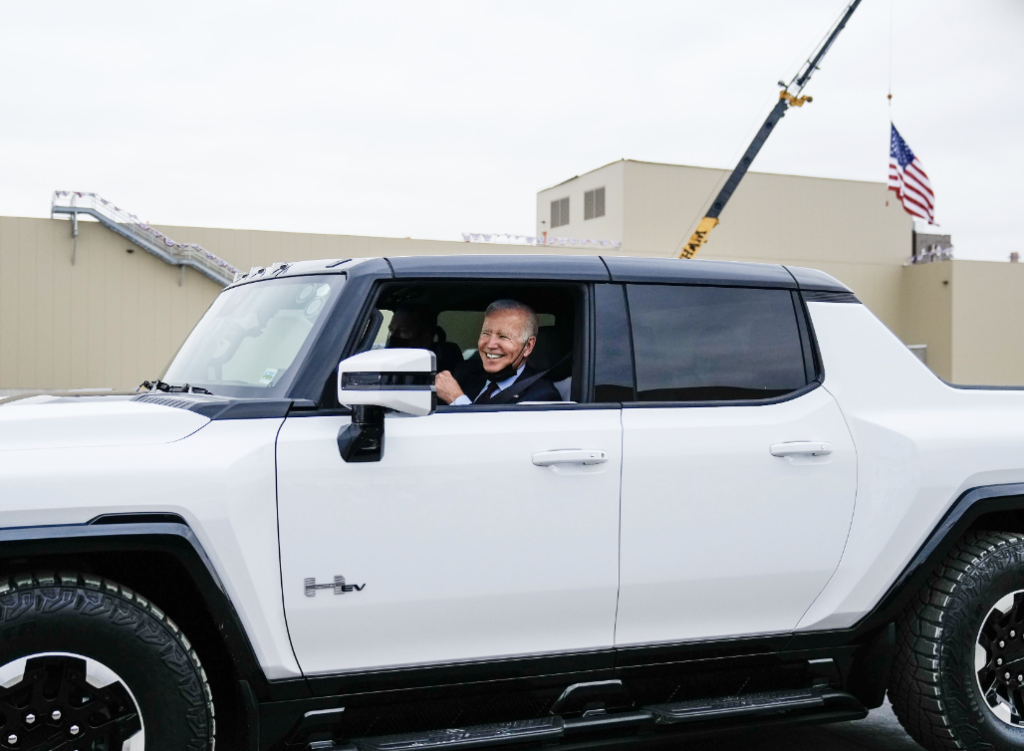
Joe Biden's recent push to send electric car into overdrive.
Joe Biden’s recent push to send electric car sales into overdrive is a bold and welcome move for the automotive industry. The President has proposed an ambitious plan of incentives, including tax credits for consumers who purchase electric vehicles, as well as investments in charging infrastructure and research & development. These measures should help create jobs across the sector while encouraging more people to make the switch from gasoline-powered cars to cleaner alternatives.

Source-BBC
The benefits of this initiative are far-reaching
not only will it reduce emissions and lead to healthier air quality, but it could also save billions in fuel costs by reducing dependence on oil imports. Additionally, increased demand for EVs would stimulate economic growth through job creation in manufacturing plants that produce these vehicles or related components such as batteries or solar panels needed for charging stations.
Furthermore, transitioning away from fossil fuels can help mitigate climate change by reducing greenhouse gas emissions associated with their combustion process – something which is becoming increasingly important given its effects on global temperatures and weather patterns worldwide.
In conclusion, Joe Biden’s push towards electrification of transportation is a major step forward when it comes to tackling climate change head-on while creating jobs at home simultaneously – two goals that often appear mutually exclusive yet have been successfully combined here thanks largely due to his administration’s commitment towards finding innovative solutions within this space according to top administration officials, President Joe Biden will announce a new national goal for the adoption of electric vehicles on Thursday, asking for them to account for 50% of all new car sales by 2030.

Source-Twitter
Everyone is concerned about global warming, according to Democratic Representative Debbie
Dingell is from Michigan, the heartland of the auto industry. from too many people in this country I mean, strong Democrats that can’t afford an electric vehicle. The inconsistent availability of charging stations and uncertainty over whether the new generation of cars and trucks will be manufactured in the United States with American-sourced parts and minerals are two further barriers to encouraging more drivers to switch to electric vehicles.
The capacity of the industry to accomplish its goals hinges on circumstances outside of its control, according to John Bozzella, president and chief executive officer of the Alliance for Automotive Innovation, which represents the top American automakers.”A lot has to go right for this massive and unprecedented change in our automotive market and industrial base to succeed,” he said in a blog post on Wednesday.
Republicans were critical of the concept, with Florida Representative Kat Cammack describing it as
It is necessary to conduct an objective evaluation of market preparedness. Rule feasibility can vary, thus that’s the answer.

Source- Detroit news
The car intelligence service at S&P Global Mobility analyst Stephanie Brinley described it as “a difficult dance.” “A more expensive car will be required to achieve higher fuel efficiency. Both the cost of
making it and the cost of purchasing it will increase. This is just a fact of life. The puzzle’s fundamental problem is that.
She nonetheless argued that because Europe and China have historically had more stringent restrictions than the United States, automakers have some experience adhering to greater fuel economy criteria.
Biden describes himself as a car guy. Additionally, his administration and its allies are promoting the new EPA emission rules as a business opportunity for the United States to control the future of transportation technology.
According to a recent report from the Environmental Defense Fund and engineering and design firm WSP USA, automakers have committed $120 billion to electric vehicle investments since 2015, with the majority of that money coming from the bipartisan infrastructure law that was passed in 2021 and the Inflation Reduction Act that was passed last year. Red or purple states account for a large portion of that spending and the employment that comes with it. Following Georgia in terms of newly announced EV jobs are Tennessee, Michigan, Nevada, and South Carolina.






